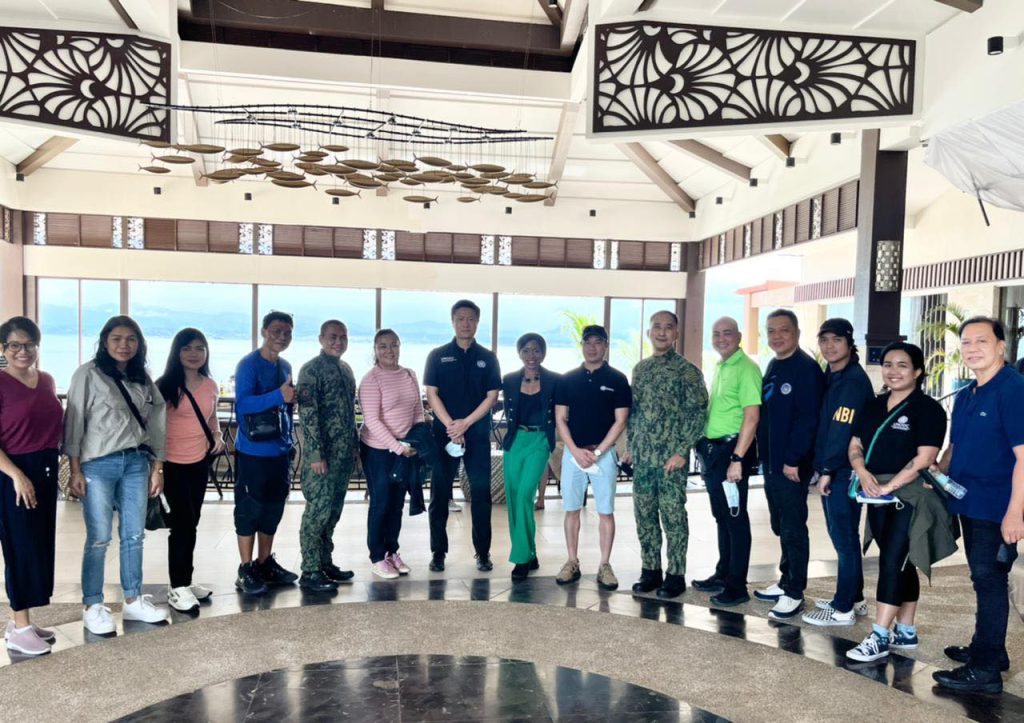
Cebu (Philippines) 12 July 2022 – “Wildlife crime is growing in scale and sophistication each year. It must be matched with an equally sophisticated and coordinated response.”
This was the broad consensus among Philippine law enforcement officials participating in a wildlife crime advisory program as they met for the 2nd time on 12-13 July 2022 in Lapu-Lapu City, Cebu Province.
The 11-member advisory taskforce—comprised of experts from the Department of Environment and Natural Resources-Biodiversity Management Bureau (DENR-BMB), Department of Justice-National Prosecution Service (DOJ-NPS), Philippine National Police-Maritime Group (PNP-MG), Bureau of Customs (BOC), and National Bureau of Investigation (NBI)—was constituted on April 2022 at the initiative of the Environment Team of the United Nations Office on Drugs and Crime (UNODC).
With financial support from the U.S. Bureau of International Narcotics and Law Enforcement Affairs (INL), the advisory taskforce aims to maintain a high level of interoperability among agencies handling wildlife trafficking cases and investigations.
“Through the years, and despite COVID-19 restrictions, criminal entities have evolved their tactics, using the latest technology to operate underground and build their networks. It is imperative for us to stay one step ahead of the actors who threaten the environment,” shared Ms. Kelia Cummins, INL Director at U.S. Embassy Manila.
Coaching Sessions and Equipment Donation
The advisory program takes on an exciting and novel approach, with UNODC advisors coaching the taskforce members on advanced investigation techniques and other best practices.
The 1st meeting held in 25-26 April in Metro Manila tackled phone/computer analyses and online trade investigation methods, while the 2nd meeting zeroed in on preparing and executing controlled deliveries, including the handling and use of an industrial endoscope for parcel examination.
After the simulation, UNODC donated three (3) units of industrial endoscope (NTS500 Pro Inspection Camera) to DENR-BMB to help the agency in screening contrabands such as illegal wildlife and wildlife parts and derivatives.
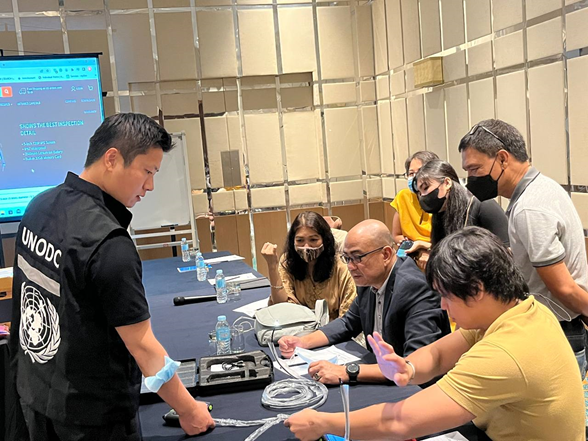
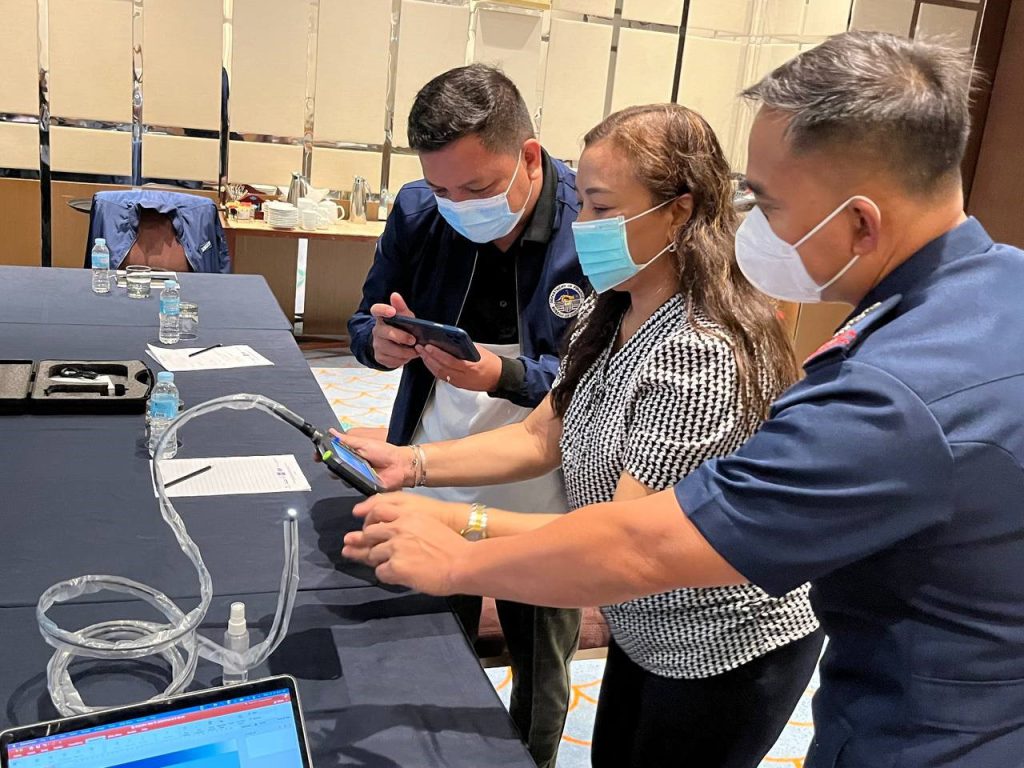
Atty. Theresa Tenazas, OIC Chief of DENR-BMB’s Wildlife Resources Division—on behalf of BMB Director Natividad Y. Bernardino—received the donated equipment and thanked INL and UNODC for their continuous technical and capacity building support to the Philippines.
“The country has become an important source, transit, and destination point for illegally traded wildlife. With UNODC, INL, and all our partners’ support, we hope to see considerable reduction of wildlife crimes, if not the end, in the Philippines and in the region,” Atty. Tenazas said.
Maritime Cooperation against Wildlife Crime
Testament to the taskforce’s resolve for collaboration, PNP-MG volunteered to lead a “Visit Board Search and Seizure” (VBSS) exercise to simulate a maritime law enforcement operation.
During the simulation off the coast of Cebu Island, the advisory team boarded PNP-MG’s very own arrest vessel—a High Speed Tactical Watercraft (HSTW)—and observed the interception and search of a commercial fishing vessel suspected to be involved wildlife trafficking.
“It’s important for us to know the parts of the ship because the hottest, grimiest, dirtiest, wettest areas of the vessel—that is where your illicit goods will be stored. It’s important to get your hands dirty,” Police Colonel (Atty) Oliver Sy Tanseco explained. He also shared the protocols for the arrest of the violators, seizure of evidence, and impounding of the vessel.
PNP-MG also led the discussion on the Shiprider Agreement, which will formally allow personnel from one law enforcement agency—such as the agencies in advisory taskforce—to embark on another law enforcement vessel to conduct joint patrol operations.
“Joint enforcement operations on police vessels involving multiple specialized agencies tasked to enforce laws against wildlife trafficking have been proven to be very effective in the past,” explained Police Colonel Tanseco, “and the simulation just showed us how we can all do it together.”
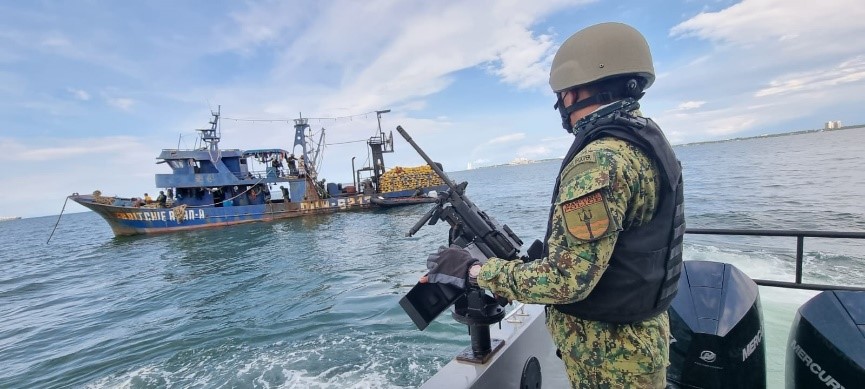
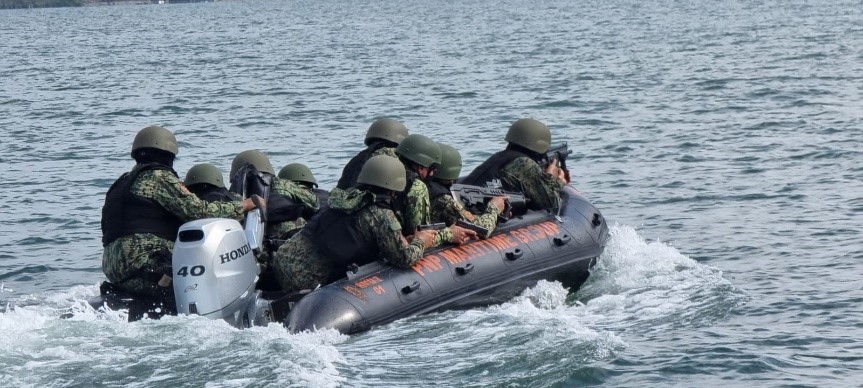
Advisory Program Results
Cooperation from this taskforce is already bearing fruits: the Bureau of Customs reported the seizure of multiple wildlife products, including 198 species of tarantulas mis-declared as thermal mugs in Pasay City, while DENR-BMB and DOJ are supporting the follow-up investigation.
The taskforce will meet again in October 2022 to share expertise on DNA forensics to support wildlife court cases.



